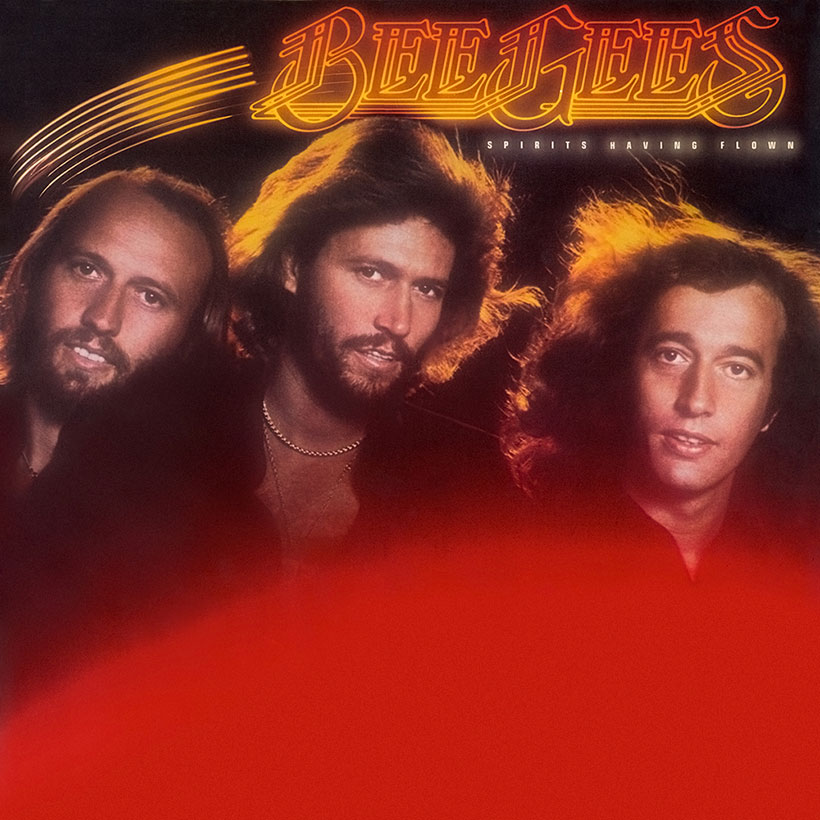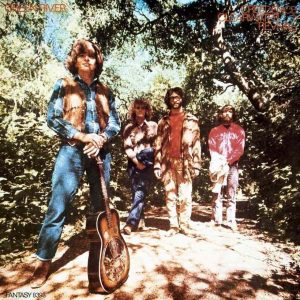When Bee Gees addressed the immense challenge of following the record-crushing, era-defining success of Saturday Night Fever, they soon found that their golden touch had not deserted them. On the contrary: the Spirits Having Flown album, their 15th studio set, went on to sell an estimated 20 million copies of its own, and gave the Gibb brothers three more US No.1 singles in a row.
Bee Gees fever
Released on January 24, 1979, Spirits Having Flown came amid suitably feverish global enthusiasm for the brothers’ disco rebirth, and as part of a ridiculously intense workload. Early in 1978, Barry Gibb was producing, and singing on, Shadow Dancing, the second album by his younger brother Andy, himself a huge chart sensation. Among other endeavours, Barry was also writing and co-producing a worldwide smash in the form of Frankie Valli’s title song for another movie phenomenon, Grease.
Robin Gibb, for his part, visited the children’s TV institution Sesame Street with his four-year-old daughter and then sang on the Sesame Street Fever album. Maurice Gibb, in his first work outside of the trio for some time, recorded the self-composed instrumental “The Love That Was Lost,” written for a short promotional film for the charity the United Way. July of that year also saw the release of the soundtrack for the Sgt Pepper’s Lonely Hearts Club Band movie, on which Bee Gees collaborated with Peter Frampton.
The utter chart domination of Barry Gibb, in particular, as a writer during the period can’t be overstated. Between December 1977 and September 1978, his songs topped the Billboard Hot 100 for a dizzying 27 weeks. But amid such tumult, Bee Gees had a new focus. From March onwards, they would devote much of the year to what they knew would be the crucial next step in the group’s development.
Refusing to be defined
Recording at Criteria Studios in their adopted home of Miami, Barry, Maurice and Robin teamed with trusted co-producers Karl Richardson and Albhy Galuten, the latter also responsible for orchestral arrangements. Other longtime associates, such as Blue Weaver, were on board, as were brass sextet The Boneroo Horns and the storied horn section from the multi-million-selling band Chicago, James Pankow, Walter Parazaider, and Lee Loughnane.
That trio made a notable contribution to the ballad that became not only the lead single from Spirits Having Flown, but an important statement that the Gibb brothers refused to be defined or limited by the disco vogue. They knew that bubble would burst, and besides, their songwriting brilliance could never be confined to any one style.
The song was “Too Much Heaven,” released in October in the UK and November across the Atlantic, with all proceeds donated to UNICEF, to celebrate 1979’s International Year Of The Child. It topped the charts everywhere, from America to Argentina and Norway to New Zealand, and even made the Top 10 on Billboard’s soul chart.
The next single, “Tragedy,” again with Barry using his favored falsetto, was released in February and was another No.1 around the world, once again platinum in the US. “A sizzling, uptempo follow-up to ‘Too Much Heaven’,” wrote US trade magazine Record World, “with some classic progressions, high harmonies and an undercurrent of synthesisers.” “Love You Inside Out” followed it to the top, becoming the Bee Gees’ sixth American chart-topper in a row over a period of little more than 18 months. They were, in every sense, writing their own records.
The Gibbs’ definitive album?
So dominant were the group that they could even leave the charming, atmospheric title track of Spirits Having Flown as an album track, except in the UK, where it came out late in 1979 to promote a new Greatest Hits collection. The acoustically-inclined, breezy track featured a cameo by acclaimed jazz flautist Herbie Mann.
Listen to the best of the Bee Gees on Apple Music and Spotify.
Capping the end of a monumental decade for the Gibb brothers, Spirits Having Flown carried both the press and the public with it. The Montreal Gazette said it had the “smoothest harmony and band arrangements of the year,” and in a review published on the eve of the album’s release, the Sydney Morning Herald noted that “fans of the group’s soft harmonies should queue at the local record store tomorrow morning.”
Billboard’s review was even more extravagant. “The Bee Gees are undoubtedly the reigning champs of contemporary music in terms of sales and airplay,” they wrote. “This collection of new studio tunes is perhaps the Gibbs’ definitive LP.”
Buy or stream Spirits Having Flown.




